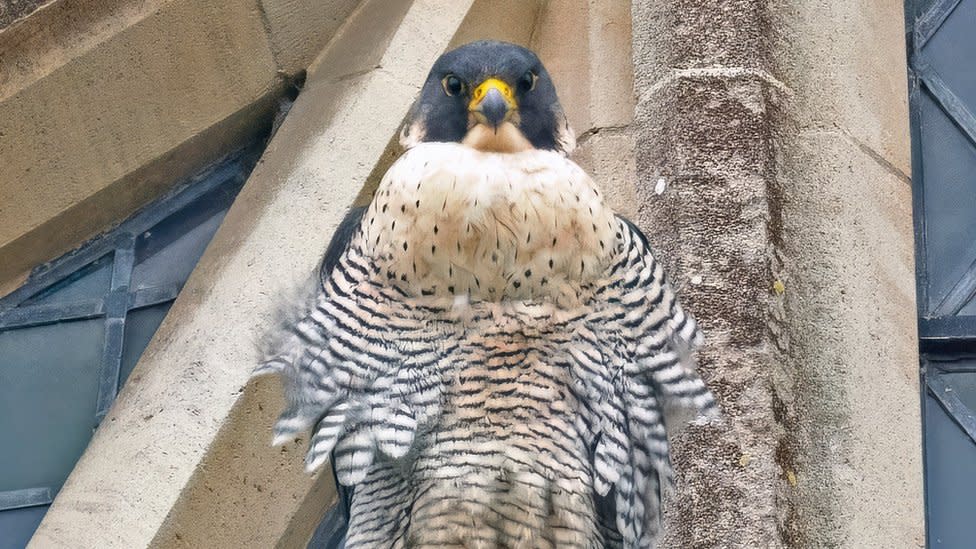Winchester Cathedral's resident peregrine Mel eats eggs

A peregrine falcon nesting at Winchester Cathedral has ended hopes of raising chicks by eating her two eggs.
Mel, who took over as the cathedral's resident female falcon in March, bred with the male bird William.
Her eggs were pushed out of the nesting tray early on Monday, with a decision made to put them back in the hope she would continue to incubate.
Keith Betton, of the Hampshire Ornithological Society, said it seemed she thought they were "not viable".
The eggs had been incubated for two weeks before she apparently scattered them early on Monday.
They were placed back on the tray and initially Mel was seen sitting on them again.
Eating them was a way to "build up her energy", Mr Betton said.
"We hoped Mel would carry on incubating the two eggs, even though we thought her chances of hatching chicks was small.
"However today she has ended her breeding attempt by eating both eggs - a sure sign that she either felt the eggs were not viable, or that time was against her."
He said it was unlikely she would lay again this year.
Mel took up residence at the cathedral in March, after the previous bird Winnie was found dead, most likely following an encounter with Mel.
Mel, named after 19th Century writer Melesina Trench, who is buried in the cathedral, mated with Winnie's former partner William.
Nothing is known about Mel's age or background as she is not ringed.
Winnie was a familiar sight over Winchester, having first nested on the old police headquarters building in 2011, before moving to the cathedral nesting site in 2017.
The peregrine falcon is the fastest flying bird and can regularly reach speeds of more than 100mph.
Numbers have recovered in recent decades, with 1,750 breeding pairs recorded in 2014.
Follow BBC South on Facebook, X, or Instagram. Send your story ideas to south.newsonline@bbc.co.uk.

